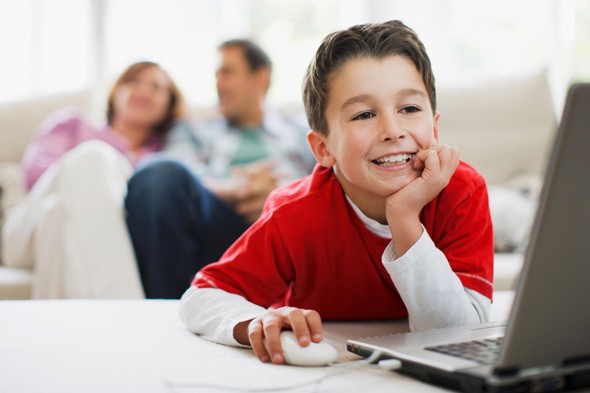Taking care basics of PC protection should be quite simple, but it is a different matter with protecting our children. Our children can make mistakes or reluctant to hear our advices. We should be more worried about keeping our children both offline and online. We need to be able to set expectations, control and monitors what kids do online and use some common sense. It is important for parents to be particularly clear with what they expect from their children when they use the computer to access the Internet.
We need to instruct our children to never give out any essential information, including name, email address, home address, age and phone number to anyone over the Internet. They should also know the danger of filling any form, no matter how harmless they could be. Children should discuss anything they find online and parents should tell their children any inappropriate thing that they should avoid whenever possible. Also, under any circumstance, they shouldn’t meet anyone they know only online.
PC that our children use should be placed in public areas inside the house. This should make it easier for parents to monitor what kids are doing. Some computer cases are equipped with physical locks on the power button, so children could only use the computer when we open the lock. Many children love to socialize in social media and instant messaging software, so we should regularly monitor their friend lists and activity history, to know with whom they’re communicating with.
It is important for us to enforce discipline and take away any computer privilege if our children disobey our instructions. It is better to have a furious child than having a happy, but unsafe one. There is also software that may protect children from any external intrusion. Good software should have to basic features, parental control and monitoring. With the latter, parents should be able to monitor any bad activities that children perform on the family PC. The software package should monitor any instant messaging, chat, email and web surfing activities that can potentially harm children.
Parental control software is a more active solution that enables parents to fully control content on the monitor. Parents can block specific website. The software could also filter chat rooms, check emails and block pop-ups. Obviously, such a software is more intrusive than a monitoring solution, but at least we could free ourselves from plenty of dubious digital payload. No software is perfect and it could still miss some of the bad stuff, because content provider could still use misleading filenames.
In the end, the type of software we choose may come down to our personal preferences. But again, it is better to accompany our children themselves and ask them questions about things that see and do online. We were all children once and we tend to became somewhat secretive about things that we are excited about. Parents should understand this behaviour and try to become a part of this excitement. This way, we could better control our children during an online activity.
